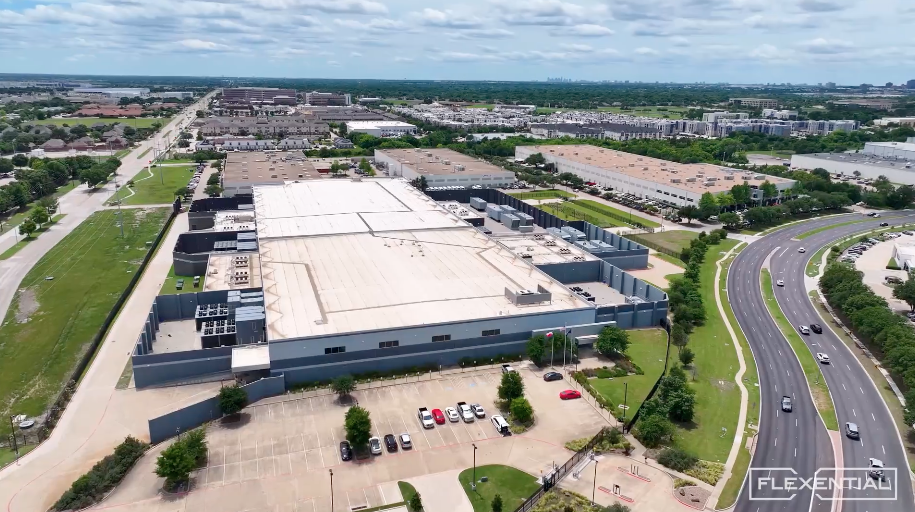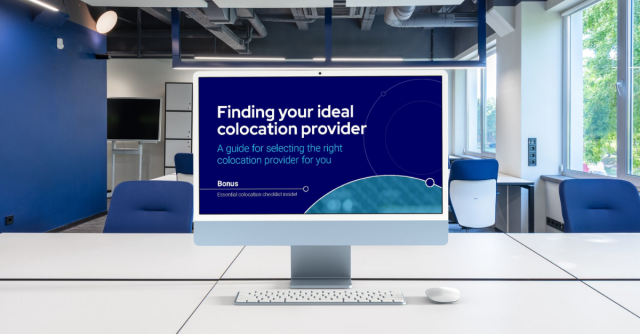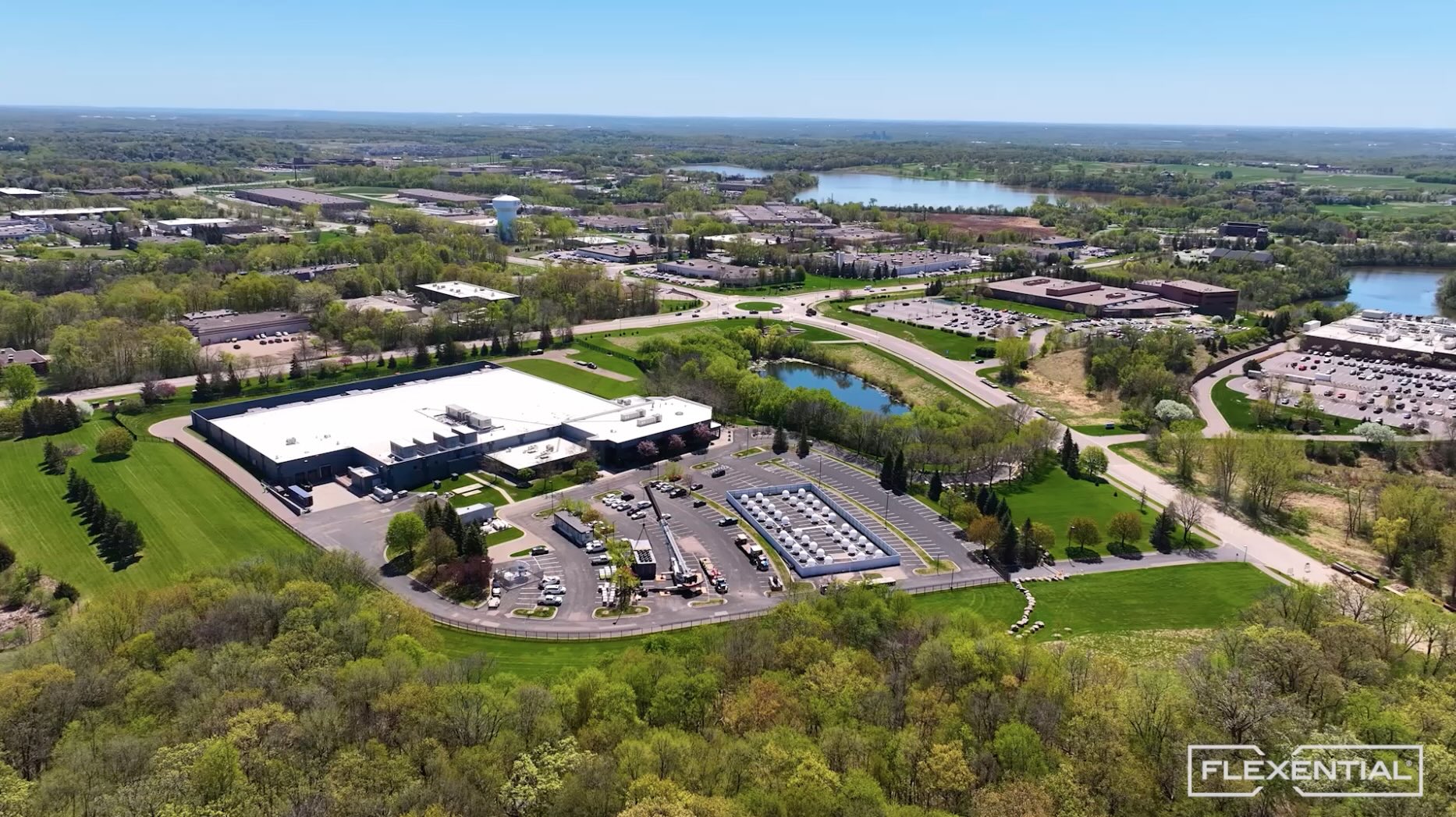The top benefits of colocation for businesses
Discover the key benefits of colocation data centers for businesses, including reliability, security, scalability, and compliance to enhance your IT infrastructure.

Understanding colocation data centers
As IT demands grow, businesses need reliable, cost-effective infrastructure solutions. Colocation data centers provide a secure, enterprise-grade environment for housing equipment without the hassle of maintaining their own data center.
These centers offer access to top-tier IT infrastructure, including redundant power, advanced cooling systems, and robust communication networks. The goal is simple: ensure that systems remain operational, even when power outages or technical glitches strike. This allows businesses to focus on their core operations while the data center handles the technical upkeep.
Security is another key advantage of colocation services, with layers of protection ranging from biometric access controls to firewalls and encryption, safeguarding against physical and cyber threats. Additionally, colocation facilities are designed for scalability, easily expanding to meet growing needs in processing power, storage, and bandwidth.
Benefits of colocation
Reliability and performance
One key reason businesses turn to a colocation data center is the unparalleled reliability and performance these facilities offer. In a professional colocation center, your servers benefit from cutting-edge cooling systems, a redundant power supply, and high-performance communication networks—all designed to ensure your infrastructure remains constantly connected and operational.
Unlike office setups, where conditions might not be ideal for IT equipment, colocation facilities are built with industrial-grade components to handle even the most demanding workloads. Providers also invest in redundancies like backup generators, multiple power feeds, fully redundant network connections, and multiple internet service providers, ensuring your systems stay operational during power outages or network issues.
Colocation providers also take a proactive approach to reliability. These data centers are designed to anticipate and avoid potential threats, from physical damage due to natural disasters to security breaches or power grid failures. This forward-thinking infrastructure of a colocation facility ensures that your business can continue operating smoothly without the risk of critical downtime or service interruptions.
Physical security and compliance
Colocation data centers prioritize security, protecting systems and data from threats like theft, vandalism, and natural disasters. Physical security data centers use advanced measures such as 24/7 surveillance, access controls, and private suites to restrict access to authorized personnel only. Fire detection and suppression systems quickly address hazards, ensuring your assets remain safe and operations run smoothly around the clock.
Compliance is another major advantage of using a colocation data center facility. Most data centers adhere to strict industry regulations and standards such as SSAE 18, ISO 20000-1, ISO 27001, SOC 1 Type II, SOC 2 Type II, SOC 3, HIPAA, and PCI-DSS. This means that your business can meet regulatory requirements without having to build out these capabilities on your own. Whether you're in healthcare, finance, or another regulated industry, colocation facilities help you maintain compliance with industry standards while minimizing risk.
Additionally, many colocation providers have compliance experts who offer audit support and ensure your infrastructure meets the necessary guidelines. This lightens the load on internal teams and ensures your business stays aligned with current regulations.
Scalability and flexibility
A key advantage of a colocation facility is the scalability and flexibility it offers. Whether your business is growing rapidly or adjusting to shifting IT demands, colocation allows you to scale your infrastructure as needed without large upfront costs. You only pay for the space, power, and bandwidth you use, making it a cost-efficient solution that still supports growth.
Colocation facilities are built to handle a range of enterprise needs, allowing you to easily add servers, expand storage, or upgrade bandwidth as traffic increases. This adaptability ensures you always have the right resources available in your data center without overcommitting, making it ideal for businesses with changing IT requirements.
Beyond simple scaling, colocation centers also provide a diverse portfolio of services that can help businesses build a comprehensive hybrid IT strategy. This allows companies to combine on-premises, cloud, and colocation environments to create an optimal infrastructure for their unique needs. With access to multiple services, businesses can tailor their IT setups to align with both current requirements and future goals.
Colocation also enables organizations to integrate additional deployments or support repatriation efforts as part of their broader IT strategy. Whether looking to expand into new markets, consolidate operations, or bring cloud workloads back on-premises, colocation provides the data center infrastructure and flexibility needed to make these transitions smooth.
Cost savings and efficiency
Colocation offers businesses a cost-effective way to reduce expenses while maintaining control of their IT assets. Instead of the significant investment required to build and manage an in-house data center, colocation provides a ready-made, secure environment at a fraction of the cost.
Businesses benefit from enterprise-grade infrastructure—redundant power, cooling systems, and high-speed connectivity—without the burden of large upfront costs or ongoing maintenance. Colocation reduces capital expenditures, converting them into predictable operating costs and freeing businesses from managing their own facilities.
Colocation providers also offer a range of services that boost connectivity, security, and affordability. With access to multiple carriers, businesses can benefit from competitive pricing and enhanced network resilience, ensuring a reliable connection for internal operations and customer-facing services. This scalability and efficiency allow businesses to grow without being weighed down by the costs of managing their own colocation data center.
Choosing the right colocation data center
Key considerations
Choosing the right colocation data center is crucial for your IT infrastructure's reliability, security, and scalability. Here are key factors to keep in mind:
Location and accessibility
The proximity of a data center to your business can influence everything from latency to how quickly your team can access the facility in case of emergencies. If your operations are highly sensitive to latency, choosing a data center near your primary offices or customer base can make a significant difference in performance. Additionally, may want a facility that’s easy to reach for routine maintenance or if you need to perform on-site tasks.
Reliability and uptime
Look for a data center with high uptime guarantees (99.99% or better) and built-in redundancies like backup power and cooling systems to avoid downtime. Be sure to ask about the data center’s history of outages and what measures they take to prevent downtime.
Security and compliance
When evaluating a colocation provider, consider both physical and cybersecurity measures. Does the facility have robust access controls, such as biometric authentication and 24/7 surveillance? Are there fire suppression systems and environmental monitoring in place?
Additionally, compliance with industry regulations is essential, especially for businesses in sectors like finance or healthcare. Ensure that the colocation provider adheres to relevant standards such as SOC 2, HIPAA, or PCI-DSS, and can support your audit and compliance needs.
Scalability and future growth
As your IT needs evolve, you’ll want the flexibility to scale up your infrastructure without needing to migrate to a new facility. Look for providers that offer scalable services and the ability to expand your footprint, whether that’s adding more racks, increasing bandwidth, or supporting more complex deployments over time.
Each of these considerations—location, reliability, security, and scalability—plays a crucial role in determining the right colocation data center for your business. A thoughtful evaluation of these factors will help you choose a provider that meets both your immediate and long-term needs.
Evaluating data center providers
Choosing the right colocation provider involves more than just selecting a facility—it’s about partnering with a provider who can support your business both now and in the future. Consider these key factors when assessing potential data centers.
Experience and reputation
Colocation centers with a long track record of success are more likely to have the expertise and resources necessary to handle your specific needs. Look for reviews, case studies, and testimonials from other clients to gauge the provider’s reliability and customer satisfaction.
Additionally, providers with a strong reputation often have established relationships with key vendors and carriers, which can enhance your access to robust connectivity and services.
Ability to meet current and future needs
When evaluating a provider, consider whether they can meet your current requirements and how they’ll support your business as it grows. Does the data center provider offer scalable solutions that allow you to easily add more capacity as needed? Can they support hybrid or multi-cloud strategies if your business shifts in that direction?
A provider who understands the importance of future-proofing their offerings will be able to adapt to your business’s evolving needs without requiring costly migrations down the road.
Security measures and compliance
The security of your data is paramount, so it's essential to understand the provider’s security protocols. Evaluate both digital and physical security measures of the data center. Do they have round-the-clock monitoring, multi-layered access controls, and rigorous cybersecurity policies? Just as important is the provider’s ability to comply with industry regulations and standards. Whether you need to meet HIPAA, PCI-DSS, or other regulatory requirements, ensure that the provider has experience handling these standards and can offer audit support to help your business remain compliant.
Connectivity options and network security
A top-tier colocation data center provider will offer diverse and reliable connectivity options. Evaluate their carrier-neutral capabilities and the number of available internet service providers (ISPs) to ensure you can access the bandwidth and network redundancy your business requires. Additionally, consider the security of their network infrastructure—do they offer DDoS protection, firewalls, and intrusion detection systems? A secure and resilient network is essential for safeguarding your data storage and ensuring uninterrupted service.
Partnering with a reliable and forward-thinking data center colocation provider will help you maintain operational excellence while staying secure and adaptable.
Colocation data center services
Managed services and support
Colocation isn’t just about physical data center space—it also provides comprehensive support to help businesses manage and optimize their IT infrastructure. Many providers offer managed services to ease the burden of daily infrastructure management, allowing businesses to focus on core operations.
One of the key advantages of choosing a colocation provider with these services is the access to a team of certified experts. Experts at professional data centers continuously monitor, manage, and maintain the data center, ensuring that your systems always run smoothly and securely. From network performance to power and cooling management, the data center staff is dedicated to maintaining uptime and reliability, often preventing issues before they even become problems.
In addition to operational support, colocation professionals act as trusted advisors, working closely with your internal IT teams to develop and implement effective IT strategies. They can help devise tailored solutions that align with your business goals, whether enhancing performance and data storage, scaling your infrastructure, or improving security. By partnering with these data center experts, businesses can adapt their IT strategies as needed, staying ahead of technology trends and operational challenges.
This level of support turns colocation providers into an extension of your own IT team, offering guidance and expertise without the need to hire additional in-house staff. Whether you need help with troubleshooting, network optimization, or strategic planning, data center professionals ensure that your IT infrastructure is always in capable hands, providing peace of mind and operational efficiency.
Connectivity and network security
One of the key advantages of colocation is the flexibility and security it offers for connectivity. Connectivity data centers give businesses access to a wide range of connectivity options, including multiple ISPs, carriers, and cloud providers. This variety allows companies to customize their network setup to meet performance, redundancy, and cost needs while benefiting from robust security protocols that protect data in transit.
Geographically dispersed facilities further enhance this flexibility by supporting businesses with specific latency requirements. By choosing data centers near headquarters or customer hubs, companies can significantly reduce latency, delivering faster services and a smoother user experience. This low-latency connectivity is especially critical for industries like finance, gaming, and media streaming, where every millisecond matters.
In addition to minimizing latency, colocation providers enable edge deployments, allowing businesses to place critical infrastructure closer to end-users. By deploying infrastructure at the edge, businesses can further reduce latency, improve performance, and provide a seamless experience for customers, regardless of their location. This is especially beneficial for organizations with global operations or those serving customers across wide geographical regions.
Network security is another critical consideration when evaluating colocation providers. From DDoS protection and firewalls to intrusion detection systems, these security layers protect against threats and ensure uninterrupted service.
Risk management and disaster recovery
Disaster recovery and business continuity
When business operations rely heavily on constant connectivity and data access, disaster recovery (DR) and business continuity planning are essential components of any IT strategy. Colocation services play a vital role in helping organizations develop a tailored disaster recovery solution that ensures uptime and minimizes data loss during unforeseen events.
One key advantage of a colocation data center is the ability to choose a backup site for data storage that’s geographically remote from your primary location. This provides protection against localized disasters like natural events or power outages. Using an off-site data center for disaster recovery ensures your critical systems and data remain accessible, even if your main site is compromised.
Colocation providers can help organizations integrate data backups and establish appropriate recovery point objectives (RPO) and recovery time objectives (RTO). By working with the data center provider to customize these objectives, businesses can define how much data loss is acceptable (RPO) and how quickly they need their systems restored (RTO) after a disaster.
Conclusion
Colocation data centers provide a reliable, scalable, and cost-effective way for businesses to manage IT infrastructure. By partnering with a trusted provider, companies can focus on their core activities while ensuring their systems stay secure and flexible. By carefully selecting the right colocation data center and provider, organizations can ensure they’re strategically investing in their infrastructure, positioning themselves for long-term success.
If you're ready to explore how colocation can elevate your business, discover more about how Flexential colocation services can support your IT needs.






